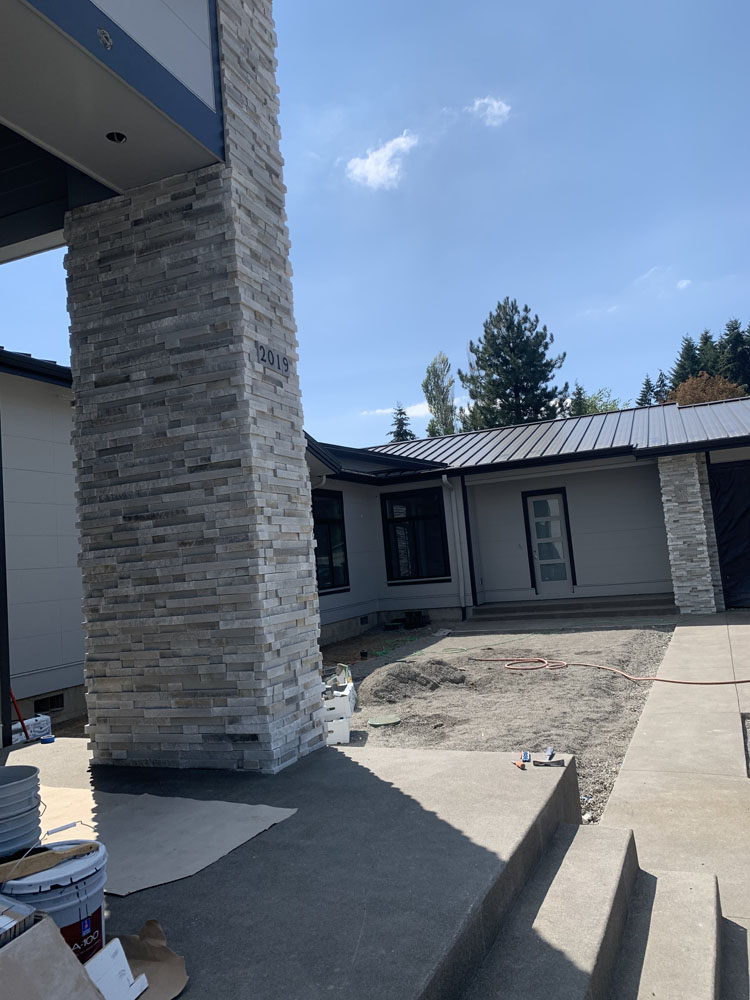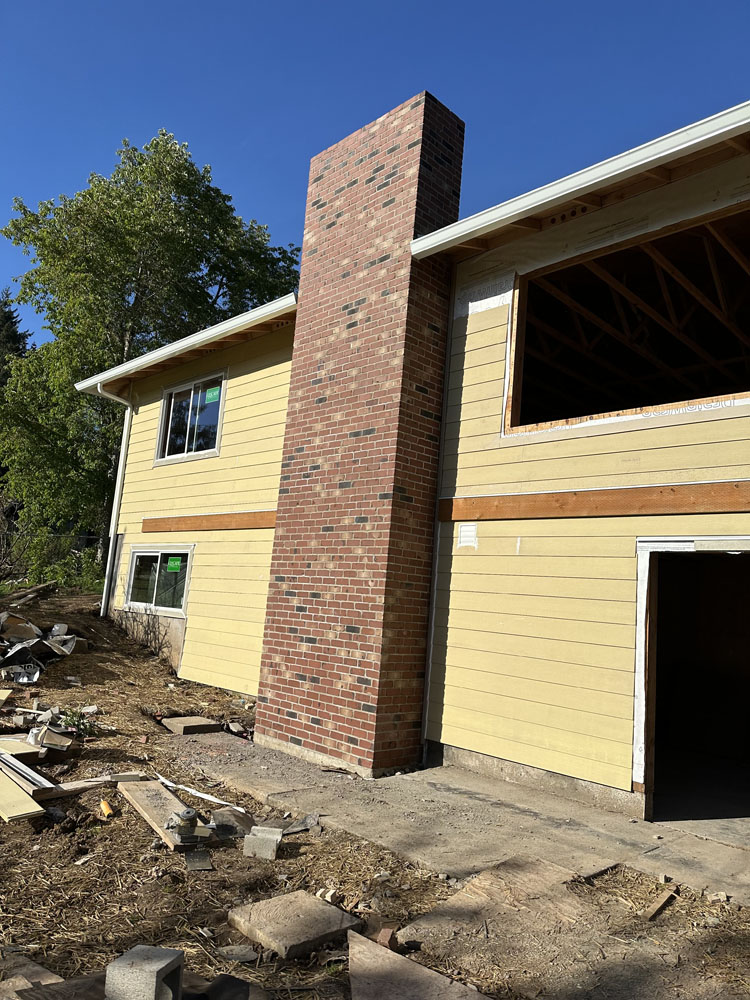Introduction
When it comes to home improvement, property owners often find themselves at a crossroads: should they repair or replace? This dilemma can arise in various scenarios, from roofing and plumbing to tiling and masonry work. As a seasoned masonry contractor, I’ve seen many homeowners grapple with this decision. The stakes are high; choosing the wrong option can lead to wasted resources, prolonged inconvenience, and even structural issues down the line.
In this article, we'll delve into the nuances of choosing between repair and replacement. We'll explore factors influencing this decision, the pros and cons of each approach, and practical insights that can guide you through the process. So grab a cup of coffee, sit back, and let’s navigate through this essential topic together!
Understanding Your Options: Repair vs. Replacement
What Does Repair Entail?
Repairing involves fixing a specific part of your property while leaving the rest intact. For example:
- Masonry Repairs: This could mean patching up cracks in brick walls or repointing stonework. Roof Repairs: This might entail replacing individual shingles instead of an entire roof.
The goal is to restore functionality without overhauling the entire structure.

What Does Replacement Involve?
Replacement means removing an existing component entirely and substituting it with a new one. This is more comprehensive than repair:
- Complete Roof Replacement: Involves tearing off the old roof and installing a brand-new one. Masonry Replacement: Could mean taking down an entire wall or chimney and rebuilding it from scratch.
Factors Influencing Your Decision
1. Age of the Structure
How old is your home or structure? If it's Ramos Masonry Construction Company masonry contractor relatively new but has suffered damage due to unforeseen circumstances (like a storm), repairs might be more sensible. Yet, if your property is decades old, replacement may be inevitable due to wear and tear.

2. Extent of Damage
Can you pinpoint exactly what's wrong? For minor issues—like small cracks—a repair might suffice. But extensive damage—such as crumbling bricks in masonry—often requires complete replacement.
3. Budget Considerations
Let's face it; budget plays a significant role in any construction decision. Repairs usually come at a lower upfront cost compared to replacements. However, if repairs are frequent or extensive, they can add up quickly.
4. Long-term Value vs. Short-term Savings
Are you looking for long-term solutions or just trying to save money right now? While repairs might seem cheaper initially, replacements can offer better durability over time.
Choosing Between Repair and Replacement: A Contractor's Insight
As a masonry contractor with years of experience under my belt, I've navigated countless situations where clients were torn between these two options. Here’s what I’ve learned:
Always assess the root cause of the issue before deciding. Consult professionals who can provide expert evaluations. Understand that sometimes investing in replacements leads to fewer headaches down the road. Consider energy efficiency; new materials often outperform older ones.Ultimately, informed decisions stem from thorough evaluations coupled with professional advice!
Pros and Cons of Repairing Your Home
Advantages of Home Repairs
Cost-effective: Typically less expensive than full replacements. Quick turnaround: Repairs usually require less time than complete overhauls. Less disruption: You can often live in your home during repairs.Disadvantages of Home Repairs
Temporary solution: Some repairs might not last long-term. More frequent maintenance: You may find yourself needing repeated fixes. Limited warranty coverage: Many repairs come without guarantees.Pros and Cons of Replacing Your Home Features
Advantages of Replacements
Long-lasting results: New installations generally outlast repairs. Enhanced aesthetics: Fresh materials can significantly improve visual appeal. Increased value: Proper replacements may elevate your property value.Disadvantages of Replacements
Higher costs: More expensive upfront investment compared to repairs. Longer timelines: Full replacements take longer due to logistics. Potential for unexpected issues: More extensive projects may uncover additional problems hidden beneath surfaces.Identifying Key Areas Requiring Attention in Your Home
Masonry Work That Might Need Repair or Replacement
1. Cracked Foundations
Your foundation is crucial for structural integrity; cracks could indicate serious problems:
- Repair if they’re hairline fractures with no movement detected Replace sections if major shifts or large cracks are present
2. Deteriorating Brickwork
Over time, bricks can weather:
- Repointing may suffice if only mortar joints are failing Full replacement might be necessary for crumbling bricks
Roofing Concerns Worth Noting Before Deciding on Actions
1. Missing Shingles
If you've noticed missing shingles after storms:
- A few missing pieces can typically be repaired An entire roof may need replacing if water damage is evident
2. Curling Edges
Curled shingles signal potential moisture issues:
- Minor cases could allow for targeted fixes Extensive curling suggests it’s time for a new roof
The Role Of Professional Contractors In The Decision-Making Process
1) Why Hire A Masonry Contractor?
A masonry contractor brings expertise in material properties that ensure durable structures:
Expertise: They understand when restoration suffices versus when replacement is necessary.
Reliability: Professionals adhere to safety standards ensuring quality work while minimizing risks associated with DIY mishaps!
2) Evaluating Contractors
When selecting a contractor:
- Look for licenses & insurance Check reviews & testimonials Ask about warranties offered on their services
Economic Impact Of Choosing Between Repair And Replacement
Investments are always about balancing cost against value! By weighing short-term savings against long-term investments carefully prior decisions will likely yield better outcomes overall!

| Factor | Repair Costs | Replacement Costs | |---------------------|----------------|-------------------| | Age | Low | Varies | | Material Quality | Moderate | High | | Time | Quick | Longer | | Warranty | Limited | Comprehensive |
FAQs About Choosing Between Repair And Replacement
Q1: How do I know whether I should repair or replace?
A1: Start by assessing damage type & extent; consult professionals like masonry contractors who specialize in evaluating these conditions!
Q2: Are there specific signs indicating replacement?
A2: Yes! Look for extensive damage such as structural instability or severe deterioration requiring significant intervention beyond simple repairs!
Q3: How much do typical masonry repairs cost?
A3: Costs vary widely based on project scope but generally range from $500-$5,000+ depending on severity & materials used!
Q4: Can I handle minor repairs myself?
A4: While some small fixes (like caulking) might be manageable for DIY enthusiasts—always err on caution when dealing with structural components!
Q5: What happens if I ignore minor issues?
A5: Small problems tend to escalate over time leading potentially towards larger failures necessitating more costly solutions down road!
Q6 : Is there any benefit in combining both approaches?
A6 : Absolutely! Sometimes partial replacements paired alongside targeted repairs yield optimal results—just ensure you get guidance from trusted professionals along way!
Conclusion
Choosing Between Repair and Replacement is no simple task – yet understanding all implications fosters empowered decision-making! Whether you're contemplating masonry work or any other aspect within your home remember there's no one-size-fits-all answer here either—all decisions hinge upon specific circumstances surrounding each case individually!
So don't rush into conclusions; take stock of all relevant factors then weigh them judiciously alongside insights shared by experienced contractors like myself throughout article above—for clarity shall ultimately pave path toward successful resolution!